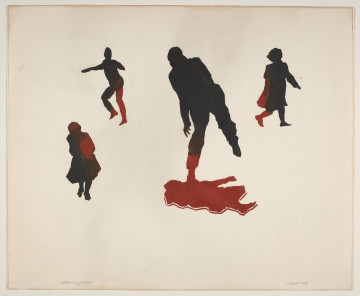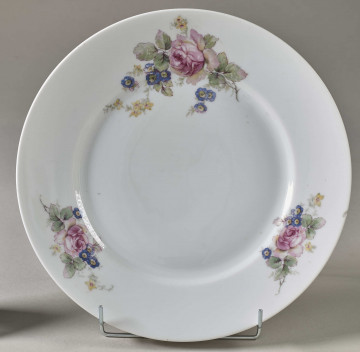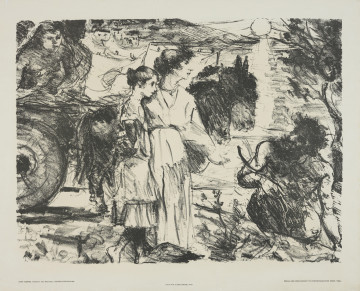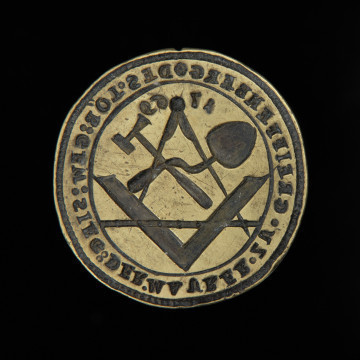
Abraded
1968
Museum of the history of Polish Jews
In the period of March 1968, art, as always, expressed emotions connected with its time, far from remaining indifferent to the socio-political situation. Despite the threatening consequences and security services' reaction, many artists commented on the communist authorities’ anti-intellectual and anti-Semitic actions, accompanied by an all-pervading atmosphere of absurdity and falsehood.
The artists had to play a game with censorship if they wanted to create in the realities of the time. Even so, the Wprost group, founded in 1966 by graduates of the Faculty of Painting of the Academy of Fine Arts in Krakow: Maciej Bieniasz, Zbylut Grzywacz, Barbara Skąpska, Leszek Sobocki, and Jacek Waltoś, set itself a goal of commenting on reality without limits, black on white. During their first exhibition in March 1966 at the Palace of Arts of the Society of the Friends of Fine Arts in Krakow, the members of the group declared: ‘We want to express directly, without omitting the multiple possibilities in visual arts: themes, symbolism, substantial forms, material used for content. Every useful method and raw material used for expression is important for the imagination, i.e. for revealing the shape of experiences’. Unwilling to agree to the assumption that creative freedom drives the artist away from relating to political reality, the Wprost Group, from the very beginning, had been pursuing the ‘consistently figurative, substantial artistic work, focused mostly on individual experiences at first, openly opposing the post-October fashion for avant-garde creative freedom, mainly devoted to formal experiences. However, it was not until March 1968 that their expression became radicalised. From then on, they were to become the country's most expressive advocates of art truly engaged in everyday collective life "(after: T. Nyczek," Rozdwojony ", [in:] 'Zbylut Grzywacz 1939–2004', Kraków 2008, p. 287).
Wprost is one of the most important Polish artistic groups of the 1960s, 1970s, and early 1980s. The collection of the POLIN Museum contains eight works, created by artists from the group under the influence of the March events. These include works produced immediately after the March hate campaign (i.e. in April 1968), conducting a direct dialogue with its time and presented at the exhibition in Grzywacz’s studio in Kazimierz in April 1968, others created before the events of March (1965), are well as years after the repressions (1981); the latter constitute a commentary uttered from a distance, by a witness of the events of March 1968, experiencing them with full awareness of the historic moment.
JO
Znaleziono 6 obiektów

1. połowa XX wieku
Castle Museum in Łańcut

1918
National Museum in Szczecin

1769
National Museum in Szczecin
DISCOVER this TOPIC
Museum of King Jan III's Palace at Wilanów
DISCOVER this PATH
Educational path